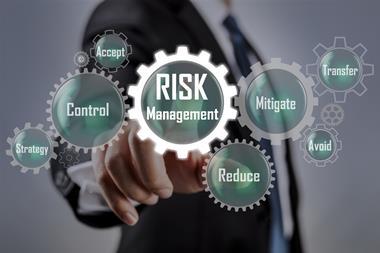Directors seeking to identify risks that can “test a company’s resilience”, including political risk and the climate crisis
Company boards are looking beyond challenges posed by the coronavirus and sharpening their focus on other external risks, including political, macroeconomic, geopolitical and climate-related uncertainties, according to a survey by McKinsey.
“When asked about this year’s agenda, directors at the most adaptable boards suggest that they are moving away from overall resilience as a topic” in order to “spend more time looking at the types of risks that, experience suggests, can test a company’s resilience,” McKinsey said.
When prioritising internal topics, the “most adaptable boards” are more likely to increase attention to workforce capability needs, cybersecurity, technology trends and diversity of company leadership than their less adaptable peers, McKinsey found in its survey of 411 board directors and top executives.
The pandemic has compelled companies to improve collaboration between the board and management, implement new structures and processes, and increase flexibility in agenda setting.
Boards also redoubled attention on strategy and focused more on corporate resilience.
The survey indicates that boards “that were quickest to adapt to the crisis are shifting their attention toward more specific risks and organisational and cultural issues,” McKinsey said. Such topics include innovation and growth, corporate social responsibility and major societal changes.
McKinsey defines “adaptable boards” as those that helped their companies respond to the pandemic and that instituted “one structural change, one process change and one change to collaboration on their boards since the COVID-19 crisis.”
Crisis management of the pandemic shot to the top of most company agendas early last year. Yet CFOs and board directors have had to assess several other risks as well, including higher inflation, growing U.S.-China tension, losses from climate change and political instability during the transition of presidential leadership.
McKinsey said boards in a post-pandemic economy can continue to “serve as catalysts for change” by:
- Maintaining flexibility in agenda setting to help their companies adapt to strategic alternatives, new risks and emerging topics such as environmental, social and governance issues;
- Increasing time on board work outside of formal meetings in such activities as training sessions or one-on-one meetings with other board members;
- Interacting more often with the executive team through formal and informal one-on-one interaction, such as “having the chair of the audit committee coach the company’s CFO.”




















No comments yet